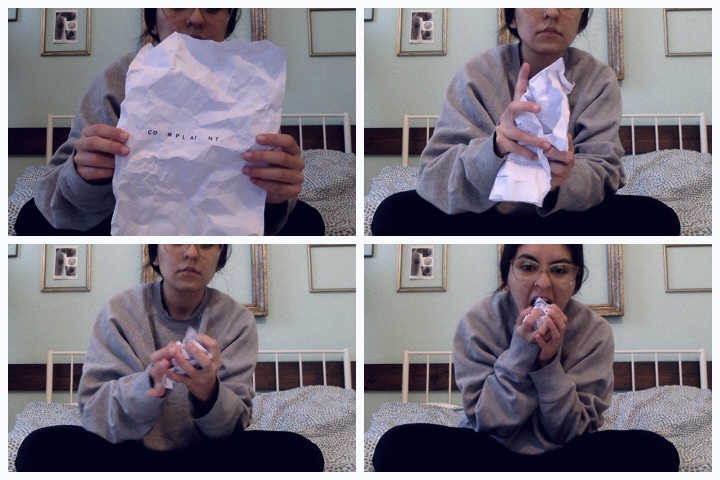Im letzten Teil ihres Buches “Complaint!” erwähnt die Autorin Sara Ahmed eine Reihe von Ideen zu Beschwerden. Einigen von ihnen stimme ich wirklich zu. Und die Sätze sind eine große Inspiration für diejenigen, die sich beschweren wollen.
“I believe in complaining, even when it’s a bad outcome, just creating that record of what happened. I am glad that it exists for me, and that if any questions are raised I have it. I did lodge a grievance, I had a go, I did try.”
“A record can be what matters to the one who assembles it; a record can be a reminder that you made an effort, that you had a go, even if that effort did not lead to institutional change.” (S. 288)
Dieses Zitat erinnert mich an einen Spruch, der mich schon oft inspiriert hat: “Wenn man sich anstrengt, hat man nicht immer Erfolg, aber wenn man sich nicht anstrengt, wird man definitiv keinen Erfolg haben.” Mit Beschwerden verhält es sich genauso: Man muss eine Beschwerde einreichen und sich die Mühe und Zeit nehmen. Letztendlich hat die Beschwerde möglicherweise keinen Erfolg. Aber wir müssen es trotzdem versuchen, um gegen die dunklen Dinge zu kämpfen.
“I leave no trace of wings in the air, but I am glad I have had my flight.”— Rabindranath Tagore
“Even going through an exhausting of processes can have creative potential. Yes, we can be in a state of exhaustion because of that process. But complaints, even formal ones, slow and tedious ones, long and drawn out, can be creative. ”(S. 289)
“I suggested earlier that even when our complaints end up in filing cabinets, we take them with us. I also noted that we don’t always know where complaints go, before they are filed. But even when complaints end up in filing cabinets, they can get out; we can get them out. Filing cabinets are temporary shelters. The more letters written, the more letters to leak.” (S. 298)
Wir alle wissen, dass die meisten unserer Beschwerden im Aktenschrank verbleiben. Der Aktenschrank ist eine sehr verbreitete Methode, um Beschwerden zu vertuschen. Aber er hat einen begrenzten Platz und kann nicht alle Beschwerden abdecken. Wenn wir also weiterhin auf unsere Beschwerden beharren und uns wehren, werden diese Beschwerden irgendwann ernst genommen werden.
Natürlich hat eine Beschwerde viel mehr Aussicht auf Erfolg, wenn sie von einer Gruppe unterstützt wird. Die Realität ist jedoch, dass viele Beschwerden von Einzelpersonen eingereicht werden. Wenn also diese ähnlichen Beschwerden als Kollektiv zusammengefasst und zusammengeführt werden könnten, wäre die Wirkung der Beschwerde sehr groß. “Two heads are better than one.” Die Autorin Sara Ahmed hat viele individuelle Beschwerden zu einem Kollektiv zusammengefasst, um dieses Buch zu schaffen. Das Buch enthält eine große Anzahl von Vorfällen aus dem Leben der Beschwerdeführer und berührt viele Aspekte des Lebens. Ja, es ist die Kraft einer kollektiven Beschwerde.

